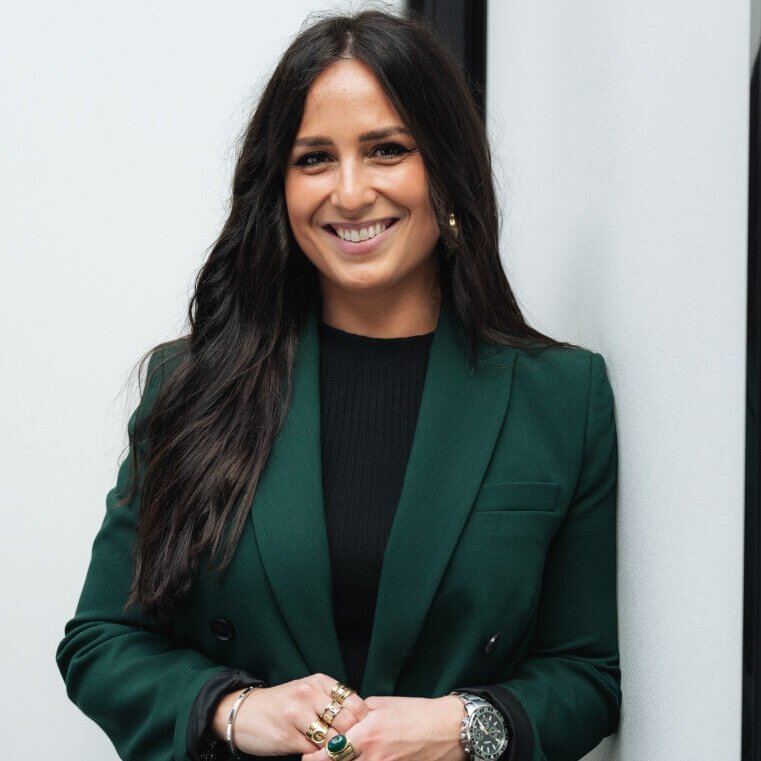Finally, a little bit of optimism. The findings from the CMO Barometer* 2024 could also be summarised as follows: more marketers believe that the economy is improving rather than getting worse. One in three marketers even expects to receive a budget increase.
Alongside this unexpected shift towards optimism, new technologies – Artificial Intelligence in particular – make up THE topic of the survey. AI will reshape expectations in the marketing landscape, impacting not only what it implies but also redefining the role of CMOs. We reached out to two experts pivotal in both crafting the survey and deciphering its findings: Julia Zimmermann, Partner Brand Strategy & Positioning at FM Consulting, and Prof Dr Sven Reinecke, Executive Director of the University of St. Gallen (HSG).
Best Trends: AI is bringing about significant changes – what does that now mean for marketing?
Julia Zimmermann: First, it is important to consider the role of marketing in many companies. Within the organisation, marketing frequently serves as the catalyst and executor of new practices to promote sales, setting the example for future-oriented work. Marketing is responsible for communication to the outside world, consequently influencing internal dynamics as well. In other words, new technologies (and other important topics such as the growing importance of sustainability) must be applied here. We need to take a stance on the use of AI: are we willing and in a position to use AI to make our marketing more efficient and effective? And if so, for which purposes exactly? How can we navigate the legal landscape and ensure our sensitive data is protected?
Best Trends: How will AI change the role of CMOs?
Prof Sven Reinecke: In my opinion, AI will initially have the greatest impact in operational marketing. This applies in particular to routine work. In addition, AI can do things that were once practically impossible, such as personalised real-time targeting as part of customer journey management, facial or person recognition, and rapid sentiment analyses on the internet. In the future, CMOs will increasingly need to navigate the associated possibilities and constraints. Managing and integrating increasingly heterogeneous teams will pose an additional challenge. There is already a need to bring together data-driven information specialists and creative, brand-oriented marketers. In the future, AI experts will make the teams even more complex. However, I see one advantage: the more digital the marketing, the easier it becomes to integrate marketing and sales. In some companies, marketing is already responsible for digital sales.
Best Trends: What must future CMOs bring to the table to competently deal with the many topics that are evolving at an ever-faster pace?
Prof Sven Reinecke: Through the CMO Barometer, we have recently conducted a survey on the marketing skills needed for the future. The key findings highlight the significance of softer skills, including openness to change, flexibility and holistic thinking. Following closely are competencies such as team management, market understanding and technical skills. In the future, CMOs will need to ‘manage’ in a more expansive way – not just overseeing, but actively steering, shaping and developing the entire market-oriented domain. In addition to marketing aspects, this evolution demands technical prowess and leadership abilities. Creativity at the touch of a button is yesterday’s news: CMOs are seeking agencies with a ‘challenger mindset’ that are willing to collaborate on an equal footing. The objective is to identify and address customer challenges proactively, strategically, and creatively – always with a steadfast commitment to the future sustainability and economic prosperity of the customer.
Best Trends: Do we still even need agencies? Or are agencies phasing themselves out?
Julia Zimmermann: I would put it this way: agencies adhering to their traditional business models, refined over years and decades, are at risk of losing ground in the long run. Today, companies are in search of more than just an extended workbench – they seek genuine ‘partners’ for their business. Many sectors are witnessing a professionalisation of corporate marketing, placing a growing emphasis on customer-centric approaches. This shift requires experts who not only understand the business but also have the ability to identify white spots and provide strategic recommendations. Inspiration from external sources is just as important – serving as a regular reality check and fostering innovation. The business model of the future involves operating as an expert and sparring partner, as well as providing essential support for company transformations through a combination of human intuition and professional expertise.
*The CMO Barometer, conducted annually, involves surveying top marketers from the most influential companies in the DACH region and eight additional countries. This year marked the fifth iteration of the study, and for the first time, it was collaboratively undertaken by the Serviceplan Group and the University of St. Gallen (HSG). The latest findings can be found here:
Interested in more content?
Back to Issue #13


